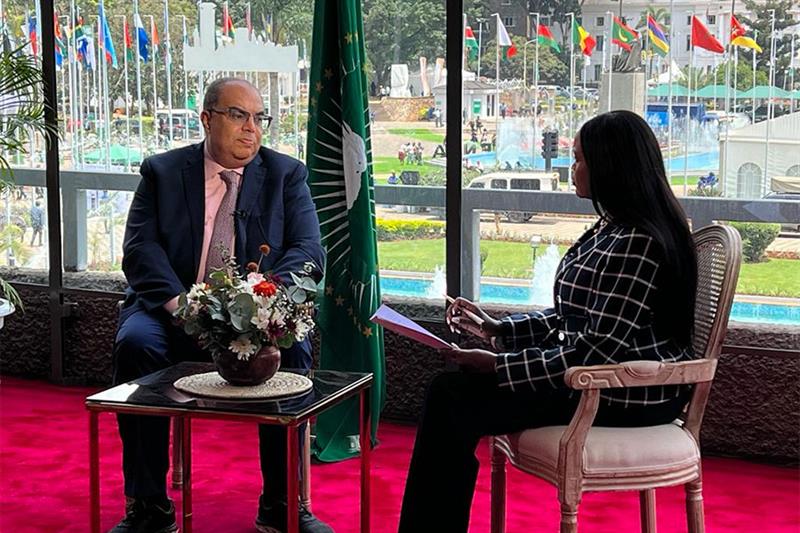
The Africa Climate Summit (ACS) has contributed to creating a unified African voice that expresses the priorities of development and climate action in the continent at different international forums, foremost of which are the UN meetings in New York and COP28 in Dubai, stated Mahmoud Mohieldin, UN Climate Change High Level Champion for Egypt and UN special envoy on Financing the 2030 Sustainable Development Agenda.
In an interview with CGTN TV Channel on Wednesday, Mohieldin said the ACS, hosted by Kenya last week, succeeded in highlighting climate action as a solution for food, energy, and debt crises. He stressed that climate action and financing climate projects serve in implementing various sustainable development goals.
Kenya’s hosting of the ACS and Africa Climate Week (ACW) with the high-level participation of leaders, heads of government, private sector, and civil society in Africa has given impetus to climate and development action at a time that the world is seeing a state of ongoing crises, Mohieldin added.
The events came at a critical moment that requires uniting efforts to achieve climate and development goals, he said.
“The Nairobi Declaration highlighted Africa’s priorities for climate and development action, and the importance of partnerships for providing finance, applying technological solutions and building capacities at African countries in order to achieve these priorities,” Mohieldin said.
The declaration also linked global efforts to regional action with taking the impacts on local communities into account, he noted.
Mohieldin referred to the interest of the ACS and ACW in discussing the annual $100 billion unfulfilled pledge by developed countries to finance climate action in developing countries. Fulfilling this pledge will enhance confidence among countries and pave the way for the implementation of more pledges, he stressed.
Mohieldin noted that this financing — even if fulfilled – will no longer be enough to fill the climate finance gap in developing countries.
Mobilizing finance for climate and development action requires mixing public, private, domestic, and external sources, as well as applying innovative finance mechanisms, he said.
Mohieldin stressed that financing climate and development action in Africa should not add to the debt burdens suffered by many African countries. He added that finance mobilization must be done mainly through scaling private sector participation and activating concessional finance policies that include low interest rate and long-term repayment and grace periods.
Just energy transition in Africa requires partnerships that contribute effectively to phasing out fossil fuel and enhancing investment in clean energy resources that the continent is full of, Mohieldin said.
He emphasized the need to take into account the economic and social dimensions and impacts of the transition process on communities.
___
Source here
